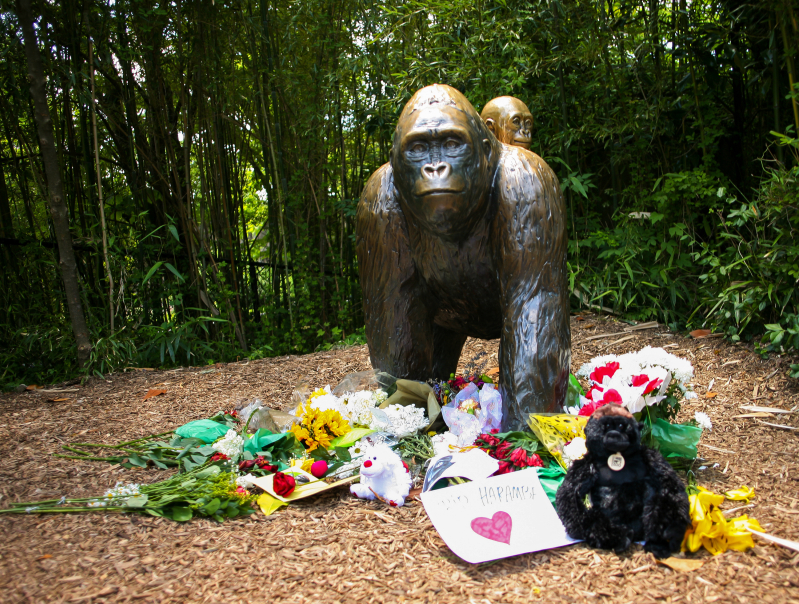
While the killing of the beloved gorilla Harambe has sparked outrage across the country, several Christian figures - including NFL star Benjamin Watson and megachurch pastor Perry Noble - have argued that the zoo made the right decision in ending the animal's life.
Last weekend, a 3-year-old boy was dragged across a moat by the 450-lb gorilla after he entered the animal's Cincinnati Zoo enclosure. After a 10-minute encounter, Cincinnati Zoo officials shot and killed the endangered gorilla. The boy was not seriously injured.
Since then, animal rights activists have called on the United States Department of Agriculture to punish the zoo for violating the Animal Welfare Act, and an online petition seeking "Justice for Harambe" had earned more than 434,000 signatures as of Wednesday morning.
CNN notes that the child's mother, who works at a child care center for toddlers and preschoolers in Cincinnati, has also been the target of much public anger, with some suggesting she should be held criminally responsible for the incident.
"This beautiful gorilla lost his life because the boy's parents did not keep a closer watch on the child," the petition states.
However, Christian NFL star Benjamin Watson has taken a different approach to the controversy and shared his thoughts a message posted to Twitter on Tuesday.
"Sometimes kids are disobedient and run off in the blink of an eye. And sometimes parents are negligent," Watson wrote. "Not sure what transpired at the zoo in Cincinnati but I do know that given the circumstances - a child in the clutch of a gorilla - the zoo authorities made the tough but correct decision to act swiftly and save the child's life, the human life."
Watson suggested that if the barrier blocking off the gorilla's exhibit was up to standard, the parents should be held responsible for the situation and be prepared to offer some sort of compensation to the zoo.
"It's sad such a beautiful animal had to die though. Especially one that's endangered and 'minding his own business' in captivity," he wrote. "Assuming the barrier passed standard safety regulations, the parents bear the responsibility for their child's actions and I'd expect them to offer some sort of recompense for the loss."
Meanwhile, witnesses interviewed by the media contended officials were forced to kill the gorilla because it appeared the boisterous crowd was agitating the great ape, putting the boy in greater danger, even though video footage appeared to show Harambe trying to protect the child.
One witness, Bruce Davis, told CNN affiliate WCPO in Cincinnati that he saw the ape toss the boy "10 feet in the air, and I saw him land on his back. It was a mess."
Another public Christian figure, megachurch pastor Perry Noble, has argued that the controversy over the incident is evidence of America's skewed perception of human life.
"I read today that over 300,000 people have signed a petition to try to get the police to investigate the parents," he wrote. "It's...hypocrisy. I wonder if the same 300,000 people have been equally bothered by Christians being beheaded/tortured in the Middle East? I wonder if the same 300,000 people were as upset when all of the dirt was exposed on planned parenthood?"
The pastor added that while humans should never exhibit cruelty to animals, it is undeniable that human life "simply has more value."
"The Bible states in Genesis 1:27 that God made man and woman (and no other creature) in His own image," Noble wrote. "Psalm 139 talks about how we were custom designed by the hands of our Creator."
He concluded: "It was very clear in this situation that a human life was at stake and when you consider that life against the feelings of some people who most likely never even saw the gorilla, putting the gorilla down, though tragic, was absolutely the right call."






